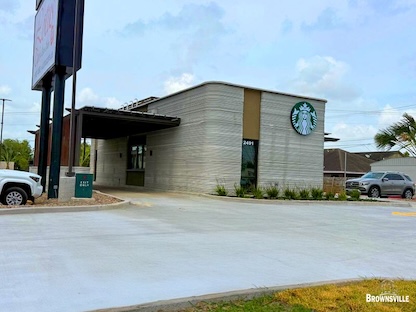Industrial real estate is often called the backbone of the economy, but not every building is performing at its full potential. At Clear Height Properties, we focus on finding those “diamonds in the rough” and transforming them into strong, reliable assets.
The opportunity lies in seeing potential where others see problems, breathing new life into overlooked or underutilized properties with the right improvements, smart execution, and a vision for what they can become.
Our approach is simple: stick to real estate fundamentals, make targeted upgrades, and reposition buildings to meet tenant demand. The result is more than strong returns. It is spaces that work better for tenants and add value to communities.
The “Diamond in the Rough” Approach
We look for buildings with good bones: clear height that works for modern users, efficient layouts, solid slabs, and flexible configurations. With these basics in place, we can avoid heavy structural costs and focus our investment on improvements that directly increase value.
Often, the buildings we buy have years of deferred maintenance. Parking lots are worn, landscaping is tired, or systems are past their useful life. Rather than seeing this as a drawback, we see it as an opportunity. By tackling these issues head on, we immediately reposition the property in the market.
Sometimes that means resolving compliance gaps, upgrading fire alarms, making ADA improvements, or rethinking inefficient office space. In many cases, reducing or reconfiguring office areas creates more warehouse space and better suits today’s tenants. Where others see headaches, we see potential.
Modern Systems and Tenant Friendly Features
Bringing properties up to current standards is a big part of what we do. One of the simplest but most impactful changes is upgrading to LED lighting. It reduces energy use, meets new code requirements, and creates brighter, safer work environments. We also integrate sustainable finishes like low flow plumbing, low VOC paints, and ceiling tiles, choices that lower operating costs while aligning with ESG goals.
Tenant expectations are also evolving. Features like EV charging stations, once considered extras, are quickly becoming the norm. We install them in strategic locations that support tenants without disrupting traffic flow or parking.
The balance between office and warehouse space is another area where we create value. Many tenants today need less office and more flexible layouts, so we design spaces that can easily adapt. We have also leaned into adaptive reuse, turning a brewery into pickleball courts and a former distribution center into a baseball training facility. Creative solutions like these meet real market demand, often faster and more cost effectively than new construction.
Execution: Vision into Value
The key to success is execution. Our capital programs are not just about fixing problems; they are about preparing properties for the long term. Roofs, paving, HVAC, and tuckpointing are all handled with trusted vendors who deliver quality and speed, while also helping us secure savings and priority scheduling.
Timing matters too. Immediately upon closing, we start prepping vacant spaces, so they are ready to lease. This includes simple but impactful upgrades like fresh exterior paint or painting interior warehouse walls white, which can dramatically brighten a space and make a big impact on first impressions.
We also think ahead when it comes to functionality: adding drive-in doors, enlarging undersized doors, or upgrading loading docks with seals, levelers, and edge-of-dock equipment are all evaluated during due diligence. Even if these improvements are not immediately necessary, we plan ahead, recognizing that they may be required during our hold period or when a tenant vacates. This forward-thinking approach minimizes downtime and ensures we are ready to move quickly.
Sustainability and Compliance
Sustainability and compliance are not optional anymore, they are expected. At Clear Height, we prioritize upgrades that reduce energy consumption, improve indoor environmental quality, and extend the useful life of assets. Replacing outdated fluorescent or metal halide fixtures with LEDs, using low-VOC paints, and installing water-efficient fixtures are just a few of the ways we integrate sustainability into our repositioning strategy.
Compliance is equally important. We systematically address ADA requirements by modifying layouts, restrooms, ramps, and door hardware. These investments not only protect our tenants and their employees but also minimize landlord liability. By taking a proactive stance on compliance, we create safer, more inclusive, and more marketable properties.
From Challenges to Opportunities
The results speak for themselves. One of our acquisitions with significant deferred maintenance is now fully leased after LED upgrades, parking lot resurfacing, and interior
reconfigurations. Another vacant distribution building is now thriving as a community sports facility.
In each case, the common thread is Clear Height’s ability to look beyond current conditions and envision what the property could become. By executing quickly, leveraging strong vendor partnerships, and focusing on tenant needs, we consistently deliver outcomes that exceed expectations.
A Holistic Commitment to Value Creation
Individually, roof replacements, ADA upgrades, or LED retrofits may not seem transformative. However, when combined into a comprehensive strategy, these investments create a strategy that consistently unlocks value. They differentiate Clear Height Properties from owners who simply maintain the status quo.
Our philosophy is that every building has potential if you know where to look and how to unlock it. By focusing on fundamentals, addressing deferred maintenance, implementing modern systems, and reimagining space to meet evolving tenant needs, we transform underperforming assets into high-performing ones.
At Clear Height, we are not just investing in buildings, we are investing in the future of industrial real estate, one “diamond in the rough” at a time.
Lauren Posey is the architect of operational excellence at Clear Height. She joined the team in 2020 and quickly built the property operations department, creating a vital connection between property management and accounting that strengthens consistency, efficiency, and communication across the company.
Today, she leads property operations, management, and construction management services with a focus on alignment and continuous improvement. Lauren combines financial insight, operational expertise, and a people first mindset that helps Clear Height stay adaptable and accountable.









